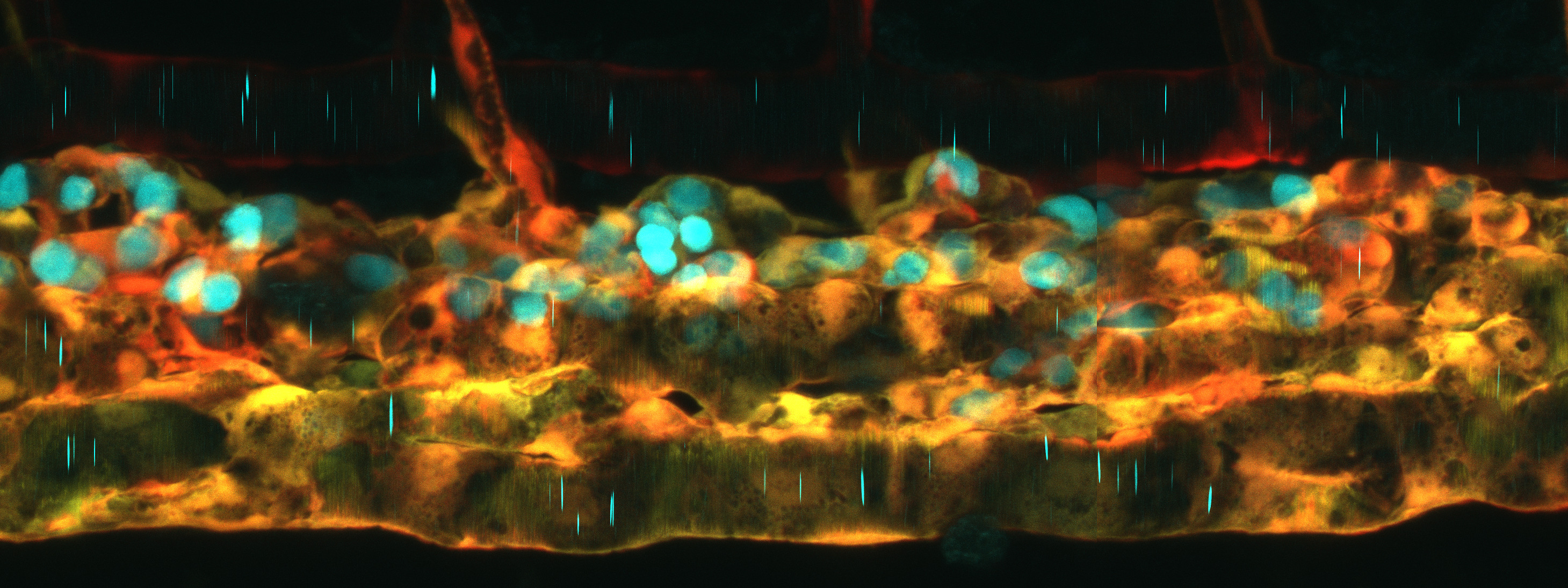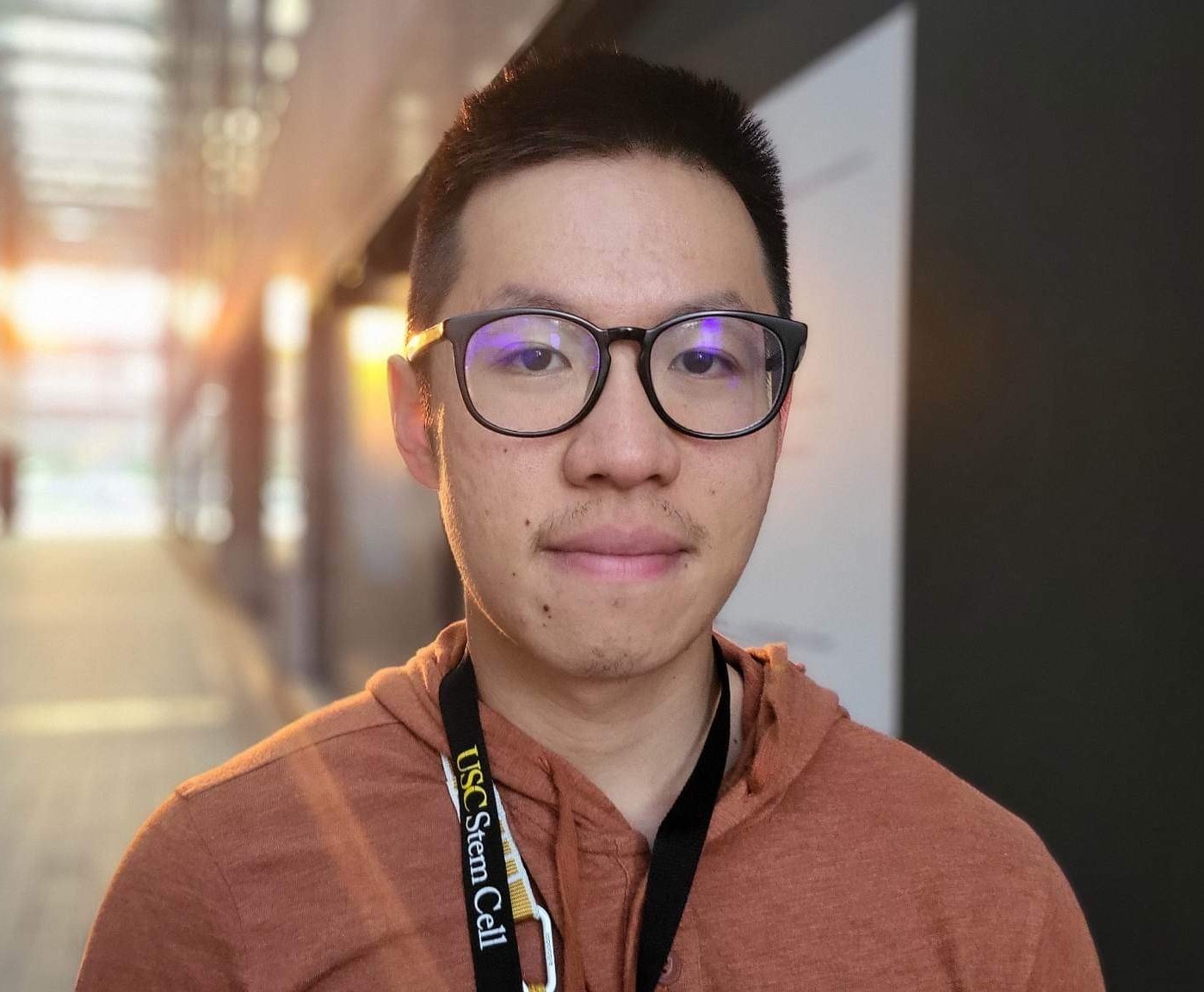18th IZFC Summary
Summary of the 18th International Zebrafish Conference (IZFC), Kyoto, Japan
From August 17 to 21, 2024, the 18th International Zebrafish Conference was successfully held at Miyako Messe in Kyoto, Japan, bringing the conference the to Japan for the first time and to the Asia-Pacific region for the second time. Kyoto is an historic city with a rich Japanese cultural heritage. This conference, the IZFS’ biggest activity of 2024, was organized by the Conference Organizing Committee, co-chaired by our Society President Corinne Houart (King's College London, London, UK) and Hitoshi Okamoto (RIKEN Center for Brain Science, Saitama, Japan), and by the Japanese Local Organizing Committee. Approximately 700 researchers from around the world, including 650 in-person and 50 online, attended the Kyoto conference, making it the largest zebrafish gathering in 2024.

The five-day conference featured two keynote speeches, three award lectures, 36 plenary talks, 90 concurrent talks, and 374 poster presentations covering various hot topics in the zebrafish field. Jie Qiao (Peking University, Beijing, China) delivered the first keynote speech on “Mechanism Research on Epigenetic Regulation of Reproductive Development from Model Animals to Human Beings”. Prof. Qiao’s studies elucidated the intricate mechanisms of epigenetic regulation in reproductive development and emphasized its significance for safeguarding health from the beginning of life. Emi Nishimura (the University of Tokyo, Tokyo, Japan) delivered the second keynote speech on “Searching for Principles of Tissue Regeneration and Aging in Mammalian Skin”. She employed mammalian hair follicles as a model to investigate the role of stem cells in maintaining skin homeostasis. Prof. Nishimura’s findings on the dynamics of skin stem cells brought significant hope for maintaining health and youthfulness in human aging.

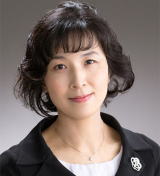
| Jie Qiao Peking University |
Emi Nishimura |
The winners of the IZFS’ prestigious awards this year are Judith Eisen (the University of Oregon, Eugene, Oregon, USA), who won the George Streisinger Award, and D’Juan Farmer (the University of California, Los Angeles, California, USA), who won the Chi-Bin Chien Award. Judith Eisen delivered her award-winning lecture on "Making Connections for a Life in Science" online. Prof. Eisen pioneered using zebrafish as a model organism to investigate neural development and neural circuits. Her talk explored connections among neurons, glial cells, muscles, and the microbiome in zebrafish. D’Juan Farmer delivered his award-winning lecture on"Mechanisms of Growth in the Vertebrate Skull: Lessons from Zebrafish". Dr. D’Juan Farmer demonstrated how genetic and cellular processes regulate craniofacial development, shedding light on human craniofacial disorders.
|
|
|
|
|
D'Juan Farmer, PhD |
Kuo-Chang (Ted) Tseng |
Judith Eisen, PhD |
Steve Wilson (University College London, London, UK) won the Christiane Nüsslein-Volhard Award of the European Zebrafish Society this year. He delivered his award-winning lecture on "Left Side Story - a Tale of Genes, Eyes, and Developing Brains." Prof. Wilson showed his pioneering and recent studies on brain development and neural connectivity, sharing hilarious anecdotes and insights from his collaborations.
36 plenary talks were held in a large auditorium where all attendees could hear them, while 90 concurrent talks took place simultaneously in three different lecture halls, showcasing almost all topics of the zebrafish field, including Early development, morphogenesis, and patterning; Cardiovascular; Organ biology; Regeneration; Neurobiology; Circuits and behavior; Cell biology; Reproduction (germline, sex determination and reproductive health); Physiology and metabolism; Lifespan and aging; Disease models; Evolution and comparative biology; and Emerging technologies. All talks were highly engaging, and the Q&A sessions were full of lively discussions with questions from both in-person and online attendees.
The conference also had six highly interactive workshops to discuss new scientific approaches, improve research environments, and expand research interactions, including “Alternative small fish model: a unique opportunity for frontier basic and applied research”, “Emerging technologies”, “Shaping the future of early-career zebrafish researchers”, “Creating a standard: next-generation atlasing in fair research”, “Zebrafish in education and outreach”, and “Swimming together towards a sustainable future”.
A total of 374 posters were presented over three days, from the second to the fourth day of the conference. Poster presenters, ranging from senior PIs to undergraduates, engaged in lively discussions while grabbing snacks and coffee during the poster sessions, which were always an important part of the Zebrafish Conference.
The Japanese Local Organizers also organized lunchtime seminars: attendees were served delicious Japanese-style bento lunches while listening to talks on the latest equipment development from sponsors. Those lunch boxes came with wonderful covers of Japanese paintings.
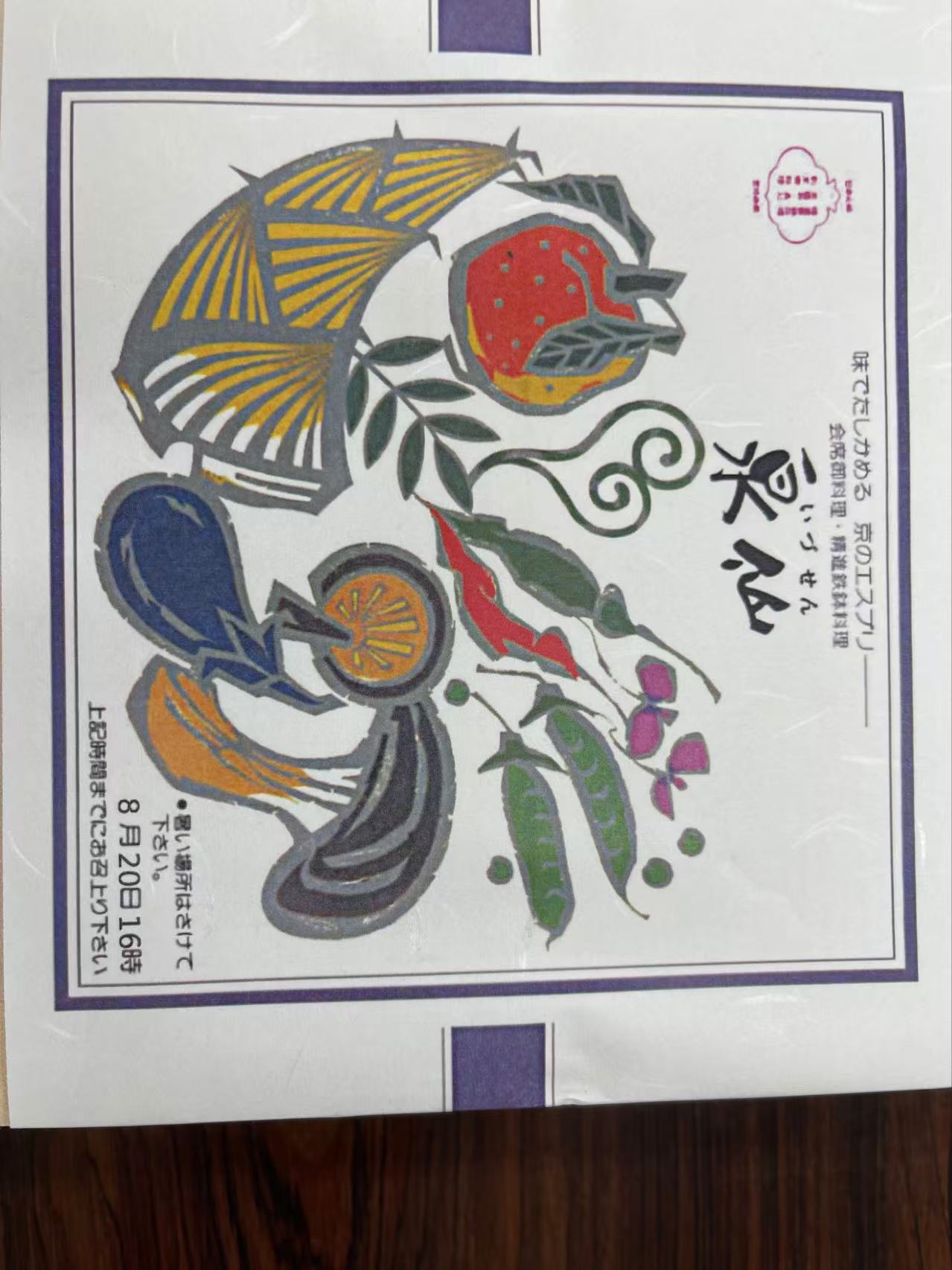
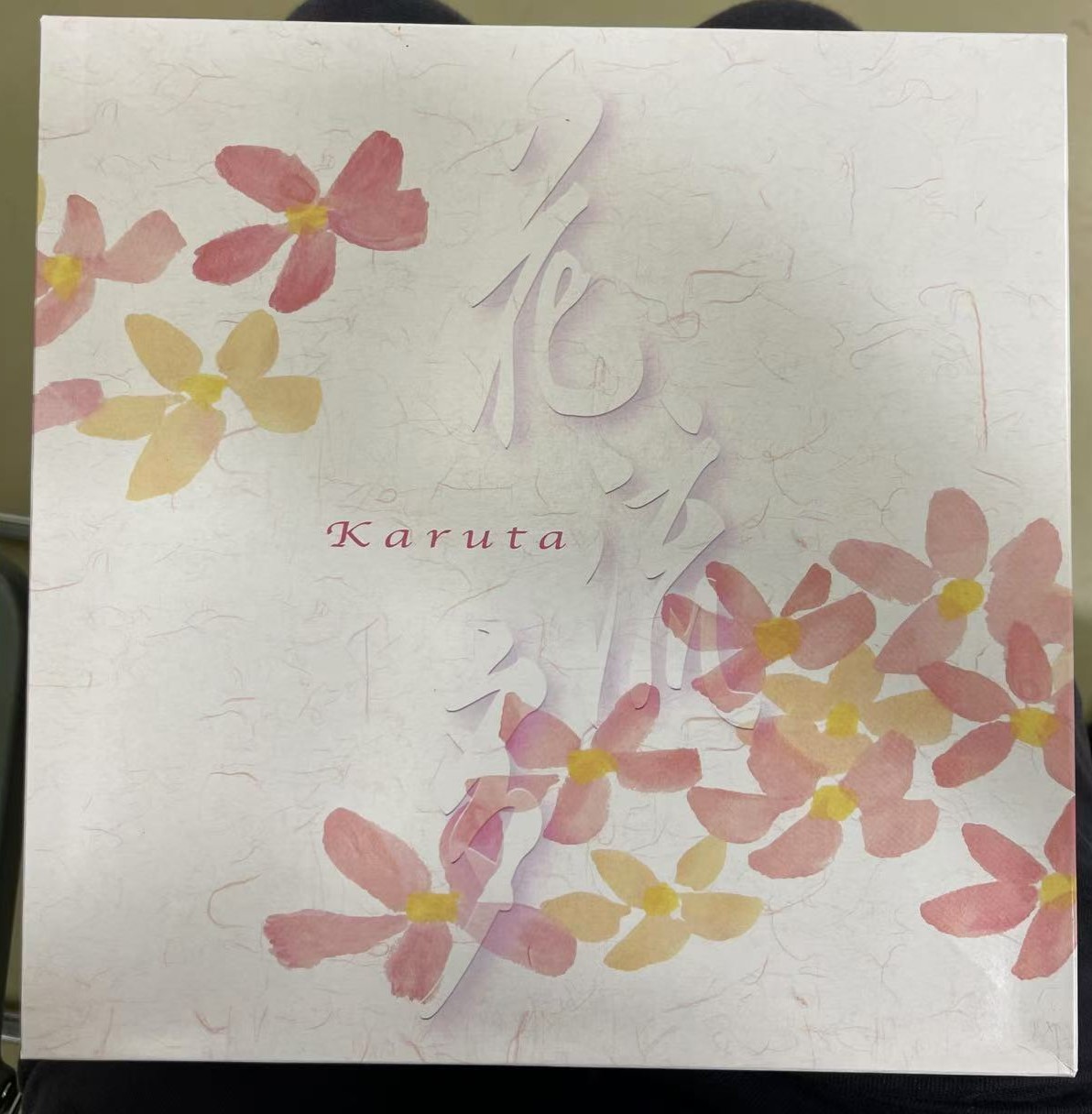
Lunch boxes with covers of Japanese paintings
The Conference banquet was held at the historic Hotel Okura Kyoto, which was kicked off by a dynamic and powerful performance of Taiko, traditional Japanese drums. While attendees mingled with glasses of wine and traditional Japanese food, such as Tempura, Corinne Houart, Hitoshi Okamoto, Emi Nishimura, and Stephan Neuhauss (the University of Zurich, Zurich, Switzerland) conducted a traditional Kagami-Biraki ceremony, where they used wooden mallets to break open a sake barrel, and then sake was served to everyone and led the toast.
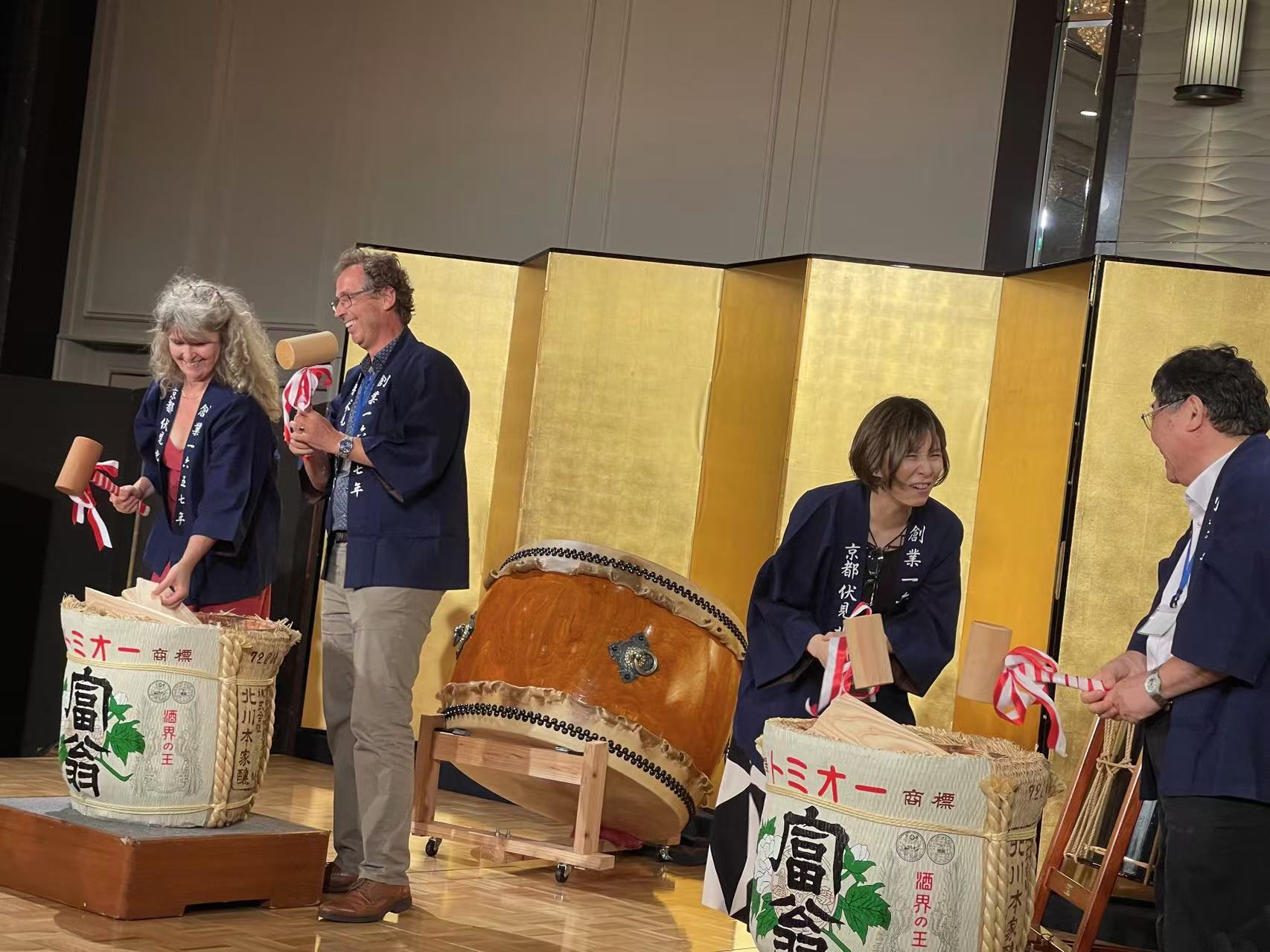
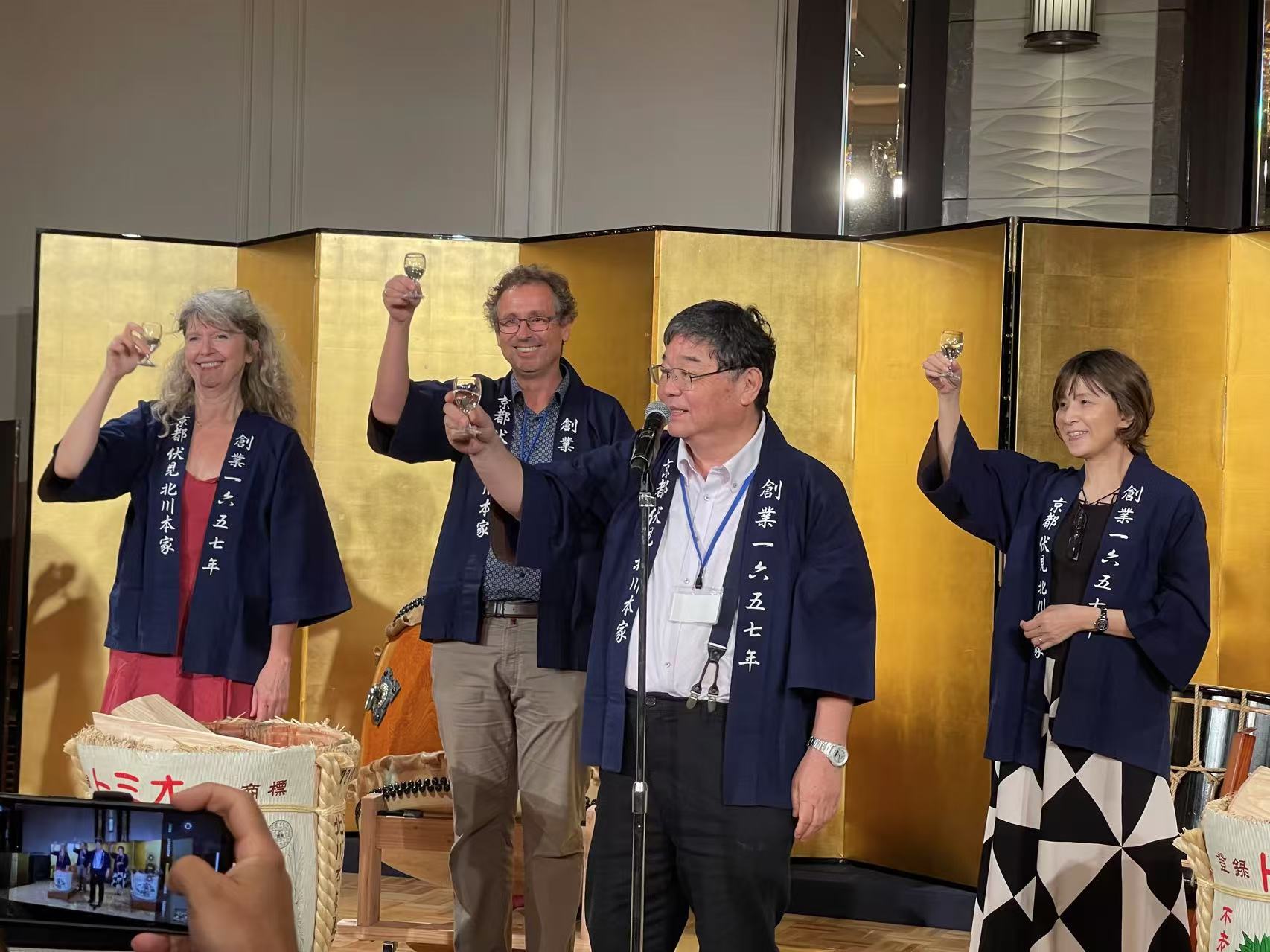
A traditional Kagami-Biraki ceremony
The Kyoto Conference was a great success by all measures. We. We all should appreciate the Conference Organizing Committee and particularly the Japanese Local Organizing Committee for such a fantastic conference. Japanese local organizers, Hitoshi Okamoto, Hiromi Hirata (Aoyama Gakuin University, Sagamihara, Japan), Tohru Ishitani (Osaka University, Suita, Japan) and their numerous Japanese colleagues did a great job. We also should thank many sponsors and vendors who have provided generous financial support for the conference.
The next IZFC will return to Madison, Wisconsin, USA, which is scheduled to be held July 9-13, 2025. Let’s look forward to another exciting and stimulating Madison zebrafish conference next year!


